Pakistan's top court rules against PM, restores dissolved parliament
Pakistan's top court has ruled that a recent blocking of a no-confidence vote to oust Prime Minister Imran Khan and the subsequent dissolution of parliament was unconstitutional.
A panel of five judges at Pakistan's Supreme Court said on Thursday that the lower house of parliament had been illegally dissolved, and ordered the chamber to reconvene to hold a no-confidence vote that will likely see Khan booted from office.
The court said all instructions given by Khan, including dissolution of National Assembly, the lower house of parliament, were reversed as it ordered restoration of the dissolved house.
"All actions taken are of no legal effect and quashed," the court ruling said, adding, "The national assembly continues to remain in session."
The ruling could spell the premature end of Khan's tenure as he now must face a no-confidence vote on Saturday. A united opposition says it has enough votes to oust Khan and take power.
The decision was met with jubilation by some in the capital Islamabad, with cars loaded with opposition supporters racing through the streets and sounding their horns.
The top court received a slew of petitions after the deputy speaker of the lower house of parliament refused to allow a no-confidence motion brought by the joint opposition against the Khan administration.
The deputy speaker declared the motion unconstitutional, saying it is part of a plot by what he called “foreign powers” to interfere in Pakistan’s democracy. Simultaneously, President Arif Alvi dissolved the parliament on the prime minister’s advice.
Pakistan's election commission said on Thursday it cannot hold snap polls within 90 days, and the earliest it could do so was October.
The president had asked the election commission to propose a date within the next 90 days to hold snap polls after Khan dissolved the lower house of parliament.
"The Election Commission though fully committed to hold elections would however require at least four additional months," the commission's statement said, citing the need to update constituency boundaries and other issues.
Pakistan’s opposition parties have said that the move by the prime minister and his ruling party to annul the no-confidence vote, and dissolving the assembly, was unconstitutional.
The opposition challenged Khan’s decision in a legal case that began on Monday, with a five-member Supreme Court bench hearing arguments in a packed courtroom. The judges in recent days heard arguments related to the dissolution of parliament by Khan.
Khan has accused the United States of being behind a parliament debate on the no-confidence motion, saying the move is an attempt at regime change backed by Washington. The Pakistani premier had earlier accused an unnamed foreign power of funding a “conspiracy” to topple his democratically-elected government.
Khan would have been the first prime minister of Pakistan to be removed through a vote of no-confidence.
The cricketer-turned-politician stands accused by the opposition of mishandling the economy and foreign policy since 2018. His embattled government has been banking on the International Monetary Fund (IMF) to release a 6-billion-dollar rescue package, but the move has been obstructed by Washington.
The Pakistan rupee took a battering on Thursday as the country awaited the court's judgment, hitting record lows.
Shehbaz Sherif, an opposition leader who is among the favorites to replace Khan as prime minister, said that the political uncertainty has had a huge impact on the country's economy.
"As (the) dollar continues to soar, a massive economic meltdown is staring the country in the face."
Iran rejects Trump’s claim on executions as ‘completely false’
VIDEO | Israel silencing truth
IRGC: Enemy command room of 10 intel agencies targeted Iran
US threat to Iran's Leader will ignite entire region: Hezbollah
VIDEO | Campaign to stop sale of Israel bonds grows in US
VIDEO | Iran judiciary, military detail foreign role in unrest; honor martyrs
Experts slam ‘scientifically reckless’ US withdrawal from WHO
Recent US military actions signal return to ‘predatory colonialism’: UN rapporteur


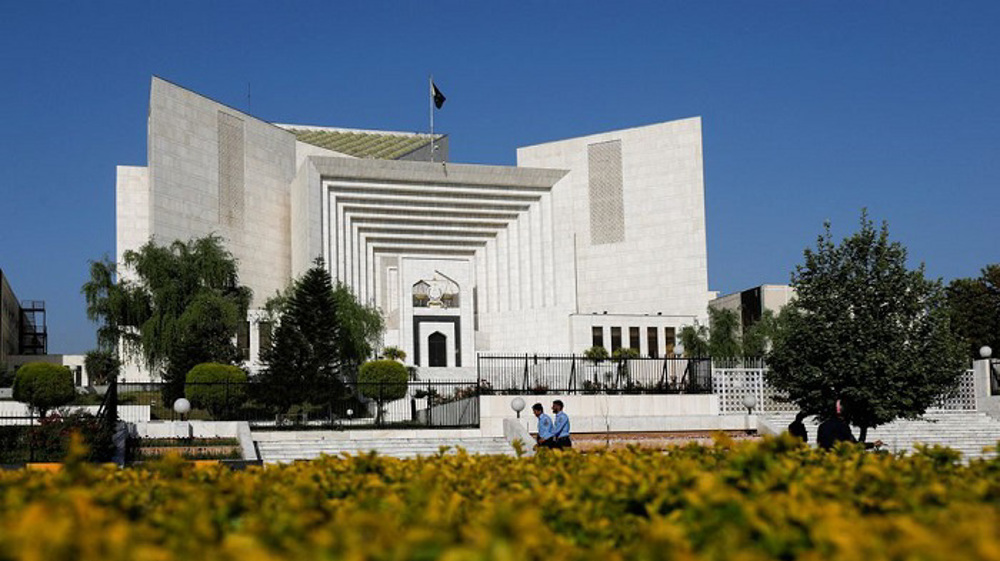
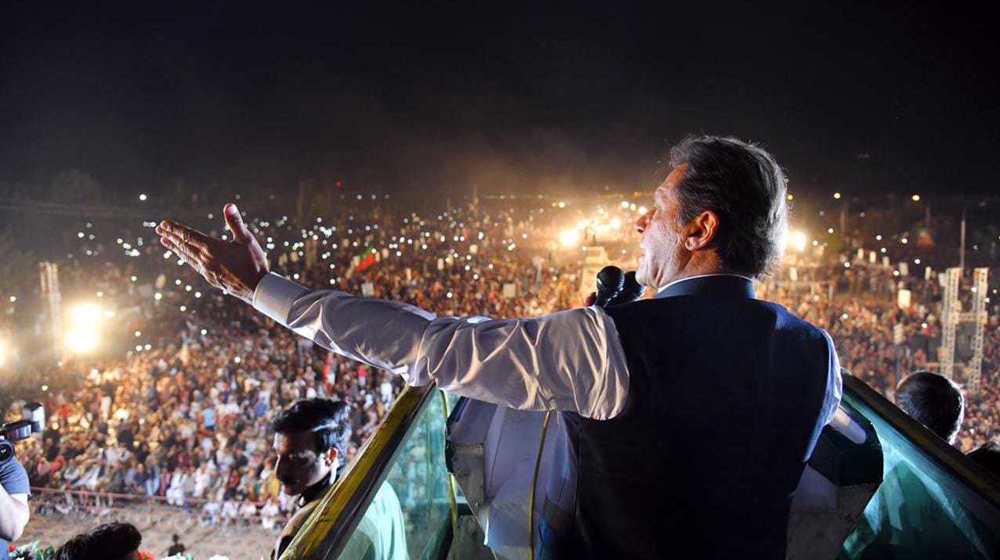
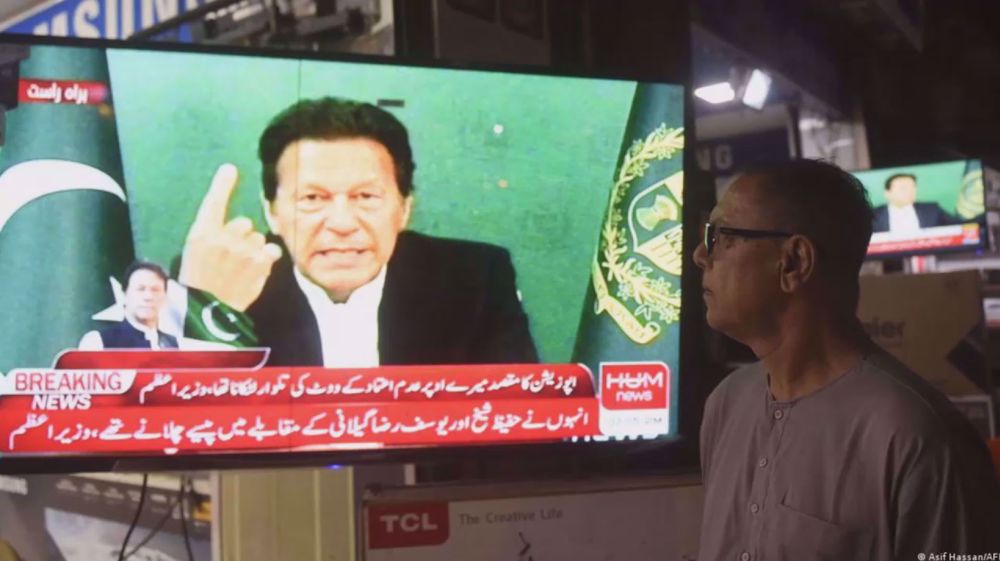
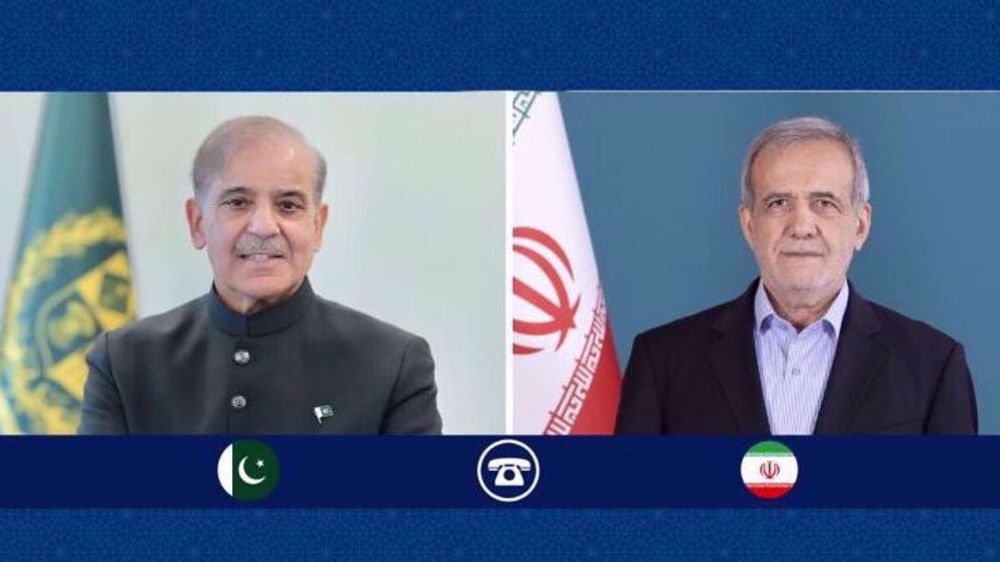
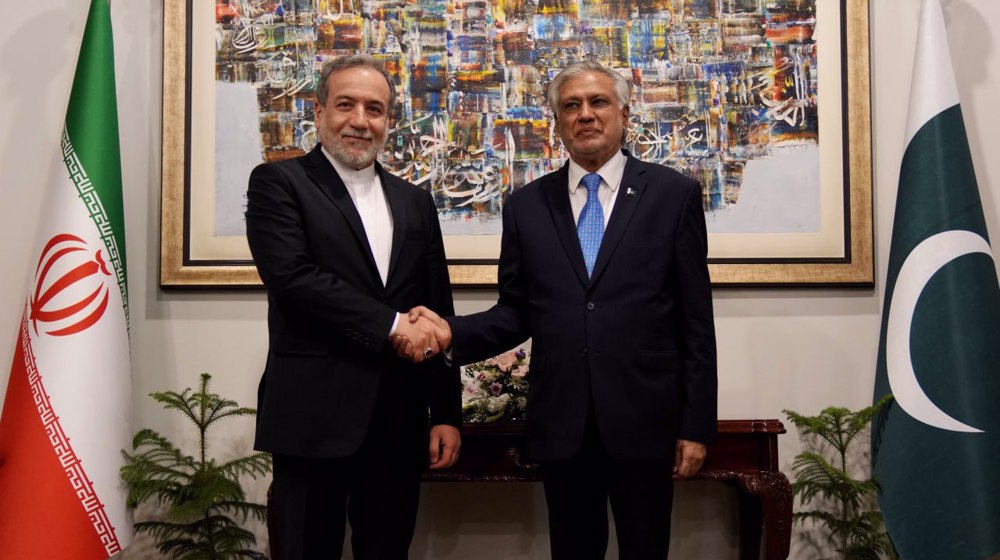
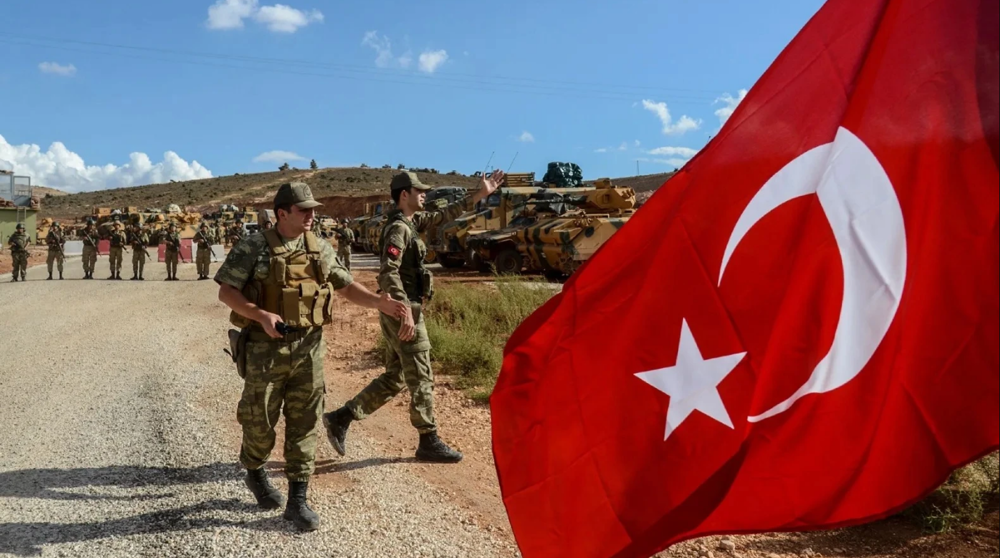



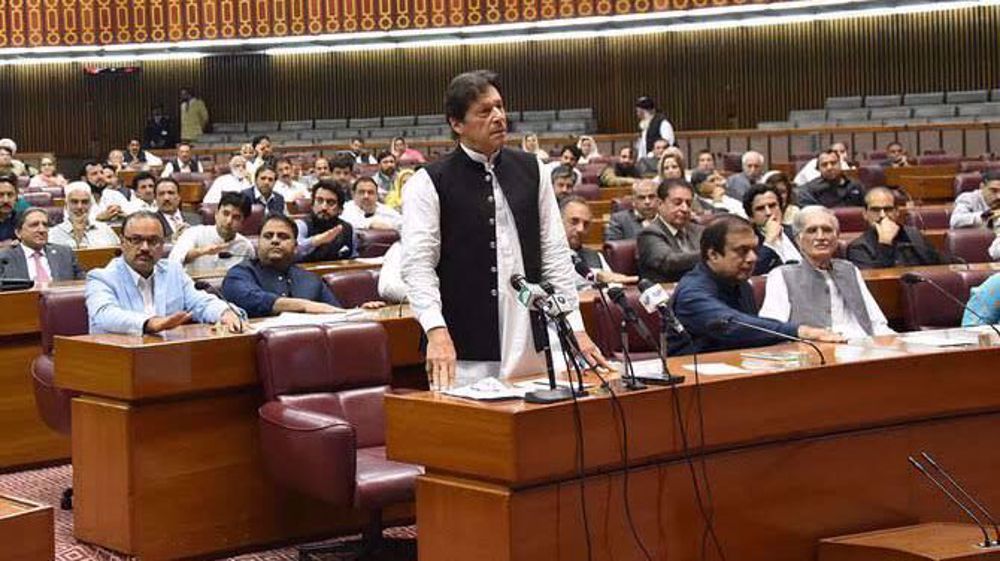
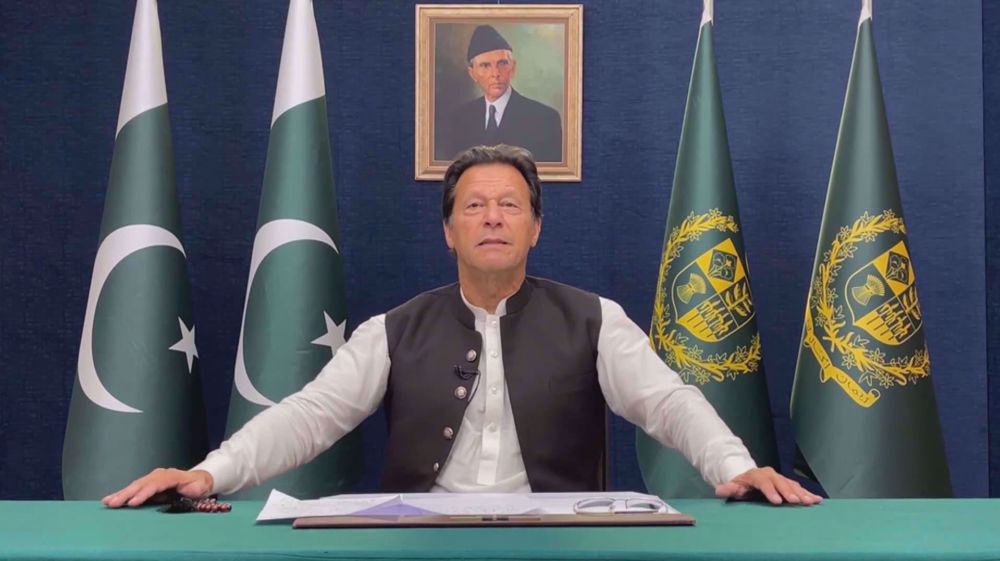
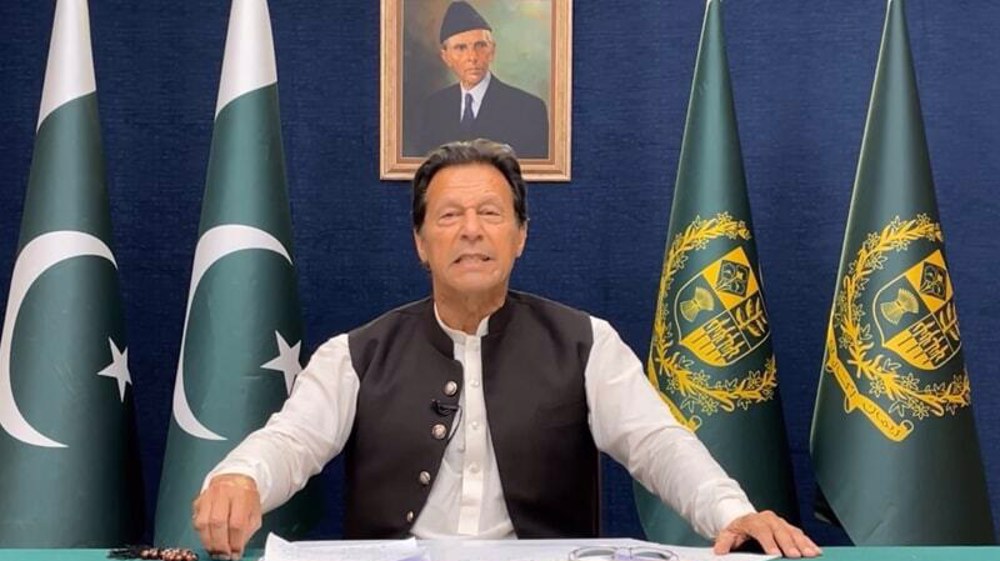
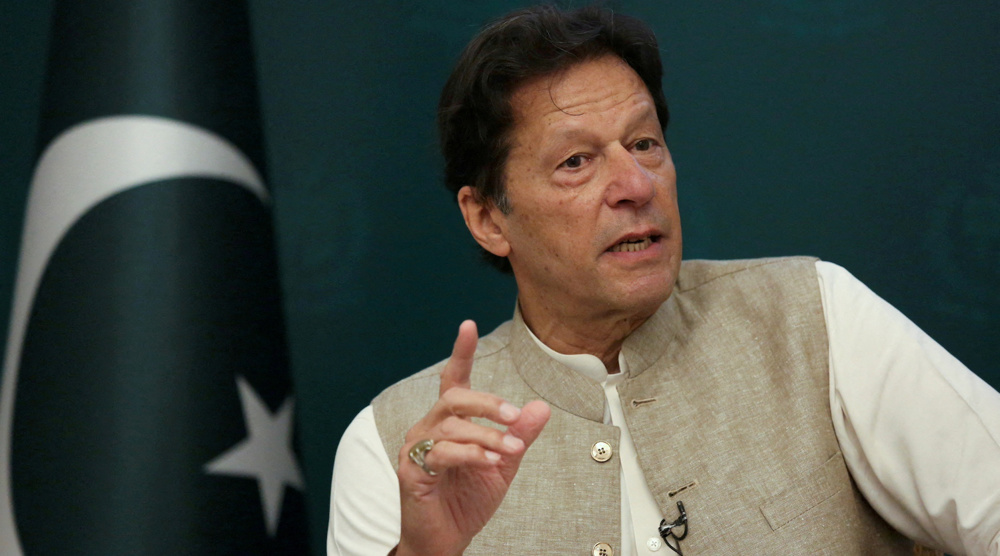
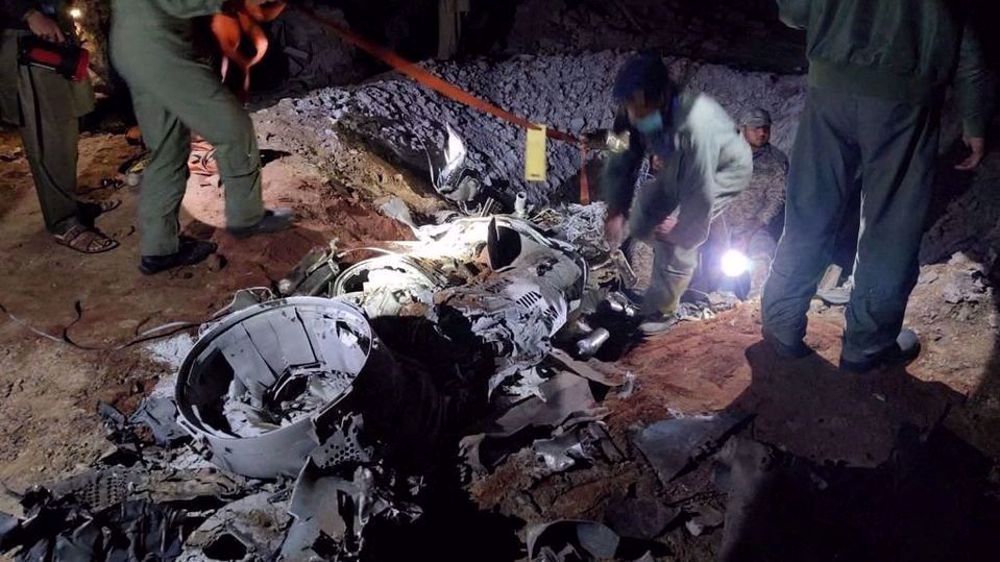
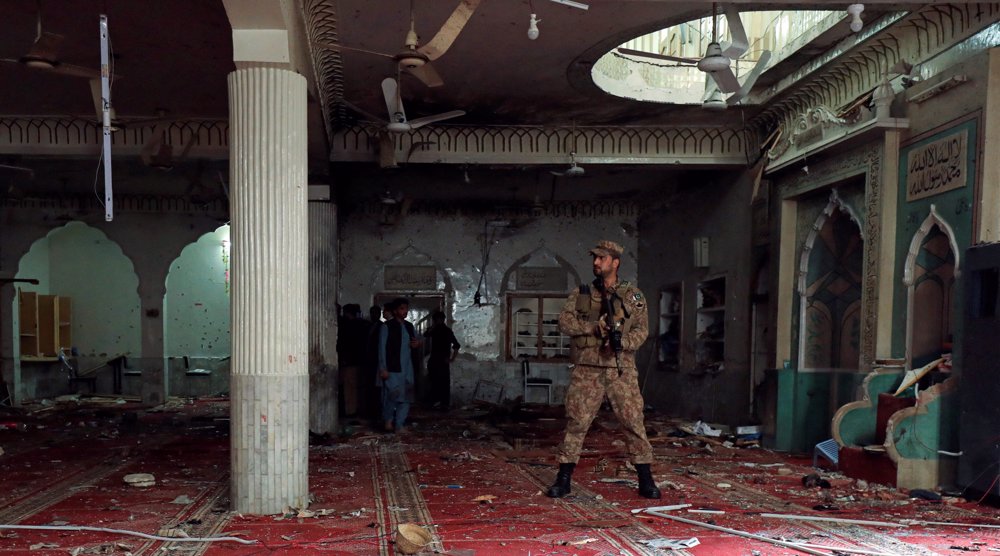
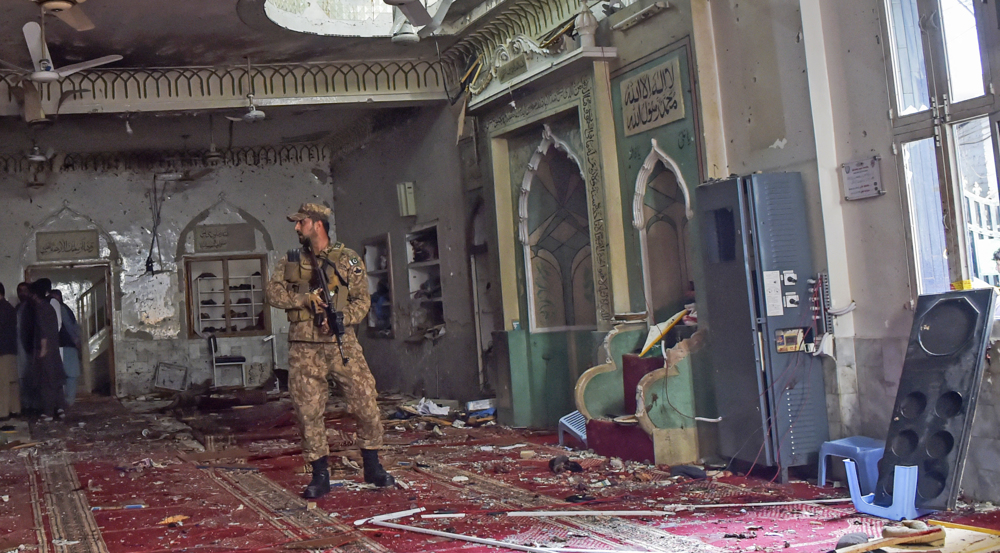

 This makes it easy to access the Press TV website
This makes it easy to access the Press TV website